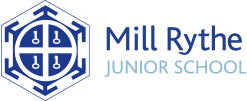At Mill Rythe Junior School, it is our intent is to give every child a broad and balanced Science curriculum which enables them to confidently explore and discover what is around them, so that they have a deeper understanding of the world we live in. We want our children to develop a love of science through relevant and memorable experiences, in which they can build on prior knowledge and be creative in its application.
Achieving this involves exciting opportunities that encourage curiosity and questioning. Whether it is year 3 children identifying the best materials for the ultimate blackout curtain for a lay in, or year 6 making electrical switches to trigger an intruder alarm, we aim to create relevant scientific experiences, so children recognise how these impact our daily lives. Our aim is that these stimulating and challenging experiences help every child secure and extend their scientific knowledge and vocabulary, as well as fostering a love of learning.
Alongside this, each year group will explore the impact of significant individuals connected to their unit of learning. From cultural icons such as Sir David Attenborough or Charles Darwin, to lesser known heroes and heroines like Charles H Turner and Marie Maynard Daly, we will see how many ordinary people have a flash of insight and inspiration coupled with aspiration and resilience which leads to world changing discoveries. Our children understand that anyone is capable of being the next to make a change.

